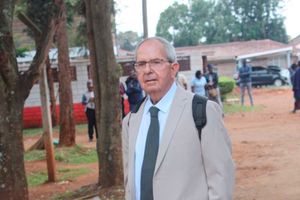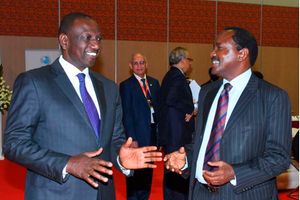Athletes’ disappearance speaks volumes about us

Mr Julius Ssekitoleko.
What you need to know:
- Ssekitoleko reportedly asked that his belongings be sent home to his wife. Local reports confirm he bought a bullet train ticket to the city of Nagoya.
- Nagoya is just under two hours from Tokyo by bullet train. Many within his generation will view him as lucky as he had nothing to return to. Only more opportunities can end this trend.
Once every four years, elite Ugandan sportsmen and women get a chance to compete with the best at the Summer Olympics.
For all that we may lack as a country, sports is known to be an equaliser in many ways. You may need resources to go to the best school or hospital.
However, all that it takes, at least primarily, to compete with others on a field of play is talent. In many ways, this makes sports a unique chance to pit the haves and have-nots.
They all get to compete under the same rules and regulations without the odds being tilted in favour of one cluster of society. You now get the drill.
With other economic opportunities few and far between for many, representing Uganda at the Olympics and similar events outside these borders is more than a privilege.
Last week, a familiar story of such events hit the headlines as weightlifter Julius Ssekitoleko, who travelled to Japan for the delayed Olympics, went missing.
The missing 20-year-old man was training as part of the nine-member Ugandan team in Izumisano, Osaka prefecture, city officials said.
Teammates realised the athlete was absent around noon on Friday when his saliva test sample was not delivered and they found his hotel room empty, city officials said.
There was no training Friday morning and he was last seen in his room in the early hours of Friday. There’s nothing new about what he did.
At every sports event, conference, meeting or anything, young Ugandans, largely between 18 and 30, choose to take the risky journey, overstaying their welcome as illegal immigrants.
We all know why they do so. The push factors here are defined by the lack of economic opportunity.
In addition, the notion that there are greener pastures in first world or second world countries is a distinct reason why Ssekitoleko and many others do what they do.
He left a note in his hotel room to summarise what he did.
In the note, the 20-year old Ssekitoleko said he went missing on purpose and does not want to return to his home country because life here is too difficult.
Ssekitoleko reportedly asked that his belongings be sent home to his wife. Local reports confirm he bought a bullet train ticket to the city of Nagoya.
Nagoya is just under two hours from Tokyo by bullet train. Many within his generation will view him as lucky as he had nothing to return to. Only more opportunities can end this trend.





